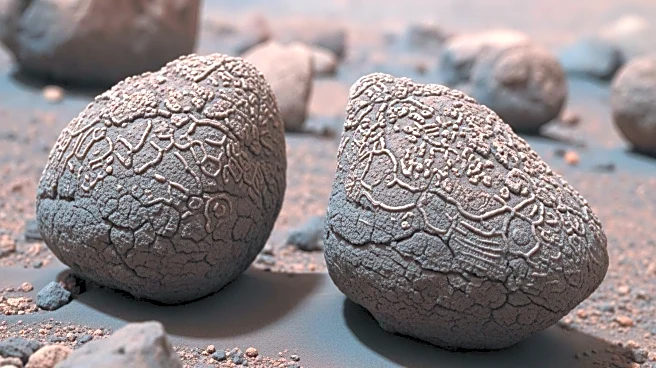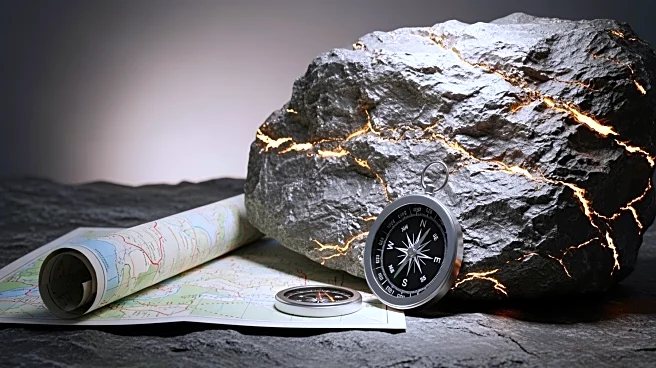What is the story about?
What's Happening?
A study led by Texas A&M University geologist Dr. Michael Tice has identified potential chemical signatures of ancient microbial life in Martian rocks examined by NASA's Perseverance rover. The research focuses on the Bright Angel formation in Jezero Crater, which contains mudstones rich in oxidized iron, phosphorus, sulfur, and organic carbon. These materials could have provided energy for early microorganisms. The findings suggest chemical cycling similar to processes used by organisms on Earth. The study, published in Nature, highlights features like ferrous iron phosphate and iron sulfide nodules, which are often associated with microbial metabolisms.
Why It's Important?
The discovery of potential biosignatures on Mars could have profound implications for understanding the history of life in the universe. If confirmed, it would suggest that life may have existed on Mars over three billion years ago, offering insights into the conditions that support life beyond Earth. This could influence future Mars exploration missions and the search for extraterrestrial life. The presence of organic matter and redox-sensitive minerals raises questions about the possibility of similar biological processes occurring on Mars as on Earth, potentially reshaping our understanding of planetary habitability.
What's Next?
Perseverance has collected a core sample from the Bright Angel formation, prioritized for return to Earth in a future mission. Analyzing this sample with advanced instruments could provide definitive evidence of past life on Mars. Researchers aim to study the isotopic composition of organic matter and search for microfossils. The findings could guide future Mars missions and inform strategies for detecting life on other planets. Continued exploration and analysis are necessary to determine whether the observed features are biological or abiotic in origin.
Beyond the Headlines
The potential discovery of life on Mars raises ethical and philosophical questions about humanity's place in the universe. It challenges existing paradigms and could influence cultural and scientific perspectives on life beyond Earth. The study of Martian biosignatures may also drive technological advancements in space exploration and astrobiology. Understanding the processes that may have supported life on Mars could inform efforts to preserve and protect potential ecosystems on other planets.

















